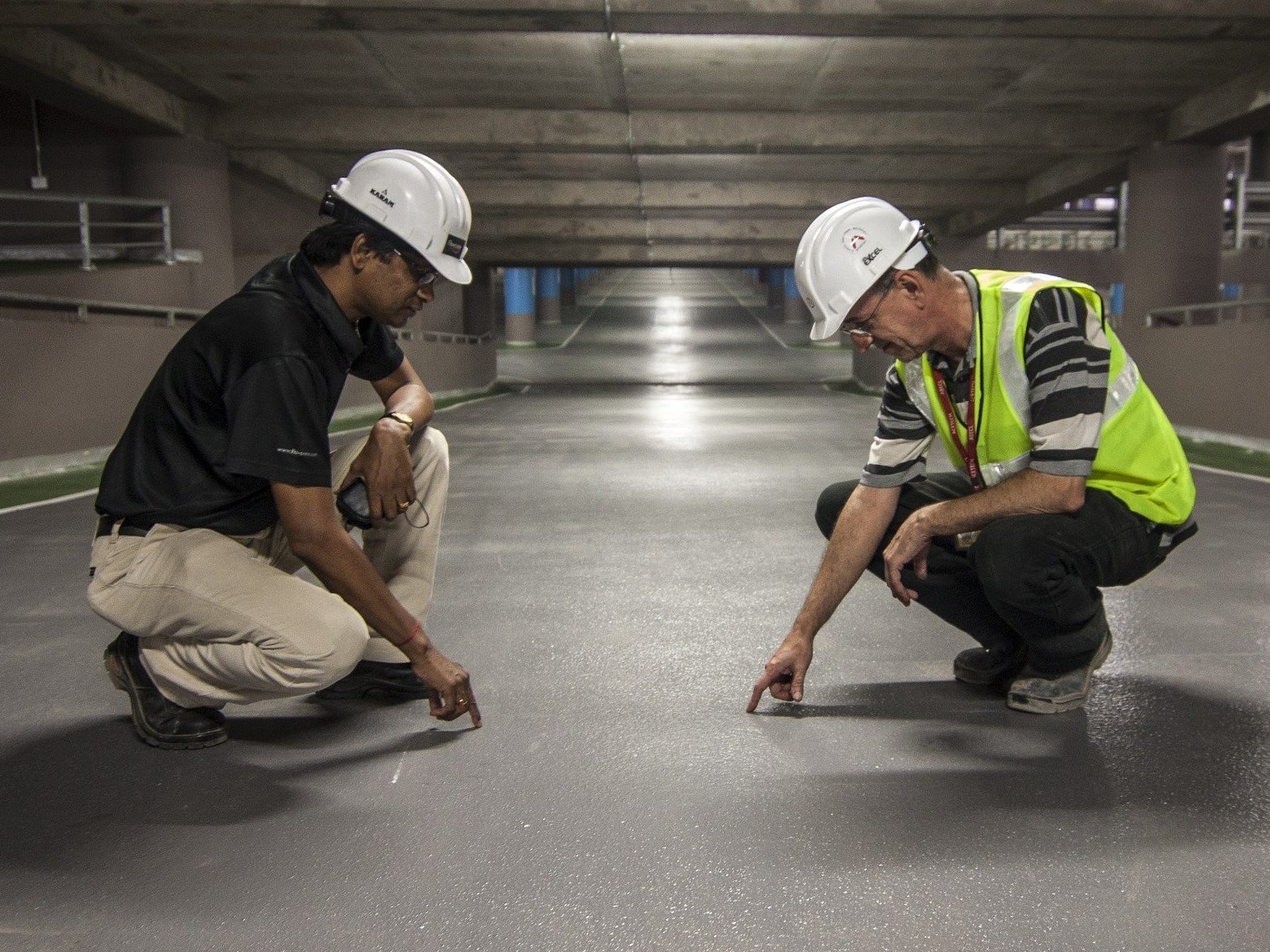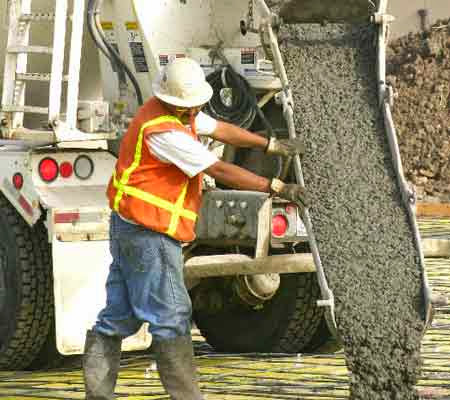The Necessary Duty of Concrete Foundation in Structural Stability and Long Life
When it concerns developing a building, the foundation is a lot more crucial than you could believe. Concrete foundations give unparalleled toughness and sturdiness, ensuring your structure can endure various ecological challenges. Without a solid base, you run the risk of potential concerns like changing or splitting, which can compromise safety and security and value. Comprehending the nuances of concrete structures could be the trick to preserving your financial investment for several years ahead. So, what should you consider next?
Comprehending the Importance of Concrete Foundations
Concrete structures are essential to the total security of any kind of structure, as they provide the necessary assistance needed to endure numerous lots and environmental conditions. When you think of building a home or an industrial area, the structure is the very first thing you ought to take into consideration. It works as an obstacle versus dampness, safeguarding your property from water damage. A well-placed concrete foundation additionally avoids settling and changing, which can cause fractures in walls and floors. You'll intend to assure that the structure is appropriately created and enhanced, as this influences the durability of your structure. In addition, a strong foundation can improve energy performance by minimizing air leaks. Bear in mind, neglecting the value of a concrete foundation can cause pricey repairs down the line. Investing in a high quality structure upfront is important for the stability and resilience of your framework.
Advantages of Concrete Foundations for Structural Stability
While several variables add to a building's architectural stability, concrete foundations offer unmatched resilience and toughness. You'll value that concrete can stand up to extreme climate condition, standing up to both dampness and temperature fluctuations. This durability suggests your framework is much less likely to experience cracking or shifting with time, which can compromise its safety.Additionally, concrete's intrinsic weight provides a solid base, stopping activity during all-natural events like quakes or floodings. When you pick a concrete structure, you're additionally selecting reduced upkeep; unlike timber, it will not rot or attract bugs, saving you time and cash in repairs.Moreover, concrete's fire resistance offers included safety and security, ensuring your structure can withstand high temperatures without considerable damages. On the whole, purchasing a concrete foundation indicates you're prioritizing the lasting security and honesty of your structure, making it a smart choice for any type of building and construction job.
Typical Kinds Of Concrete Foundations
When it involves developing foundations, comprehending the typical sorts of concrete structures can help you make informed options for your project. The most prevalent kinds include slab-on-grade, crawl area, and complete basement foundations.A slab-on-grade foundation is a basic, affordable alternative, where a thick concrete piece is put directly on the ground. This kind functions well in cozy climates, as it reduces warmth loss.Crawl space foundations boost the home somewhat above ground, allowing for ventilation and access to plumbing and electrical systems. This design can assist stop wetness issues.Full basement structures supply additional living or storage area while giving excellent structural support. They call for even more excavation and are generally used in colder climates to stop frost heave.
Elements to Think About When Creating a Concrete Foundation

Best Practices for Installing Concrete Foundations
When you're setting up a concrete foundation, correct site prep work is vital to guarantee stability (West Coast General Engineering Concrete). You'll additionally require to recognize reinforcement methods to enhance stamina and sturdiness. Don't ignore the healing procedure, as it plays an essential function in achieving a strong foundation.
Website Prep Work Significance
Although it might appear straightforward, correct website prep work is important for guaranteeing a strong and durable concrete foundation. Start by getting rid of the area of any kind of debris, vegetation, or natural product that can endanger the structure's integrity. Next, analyze the dirt kind and compaction; you may need to excavate or include materials to develop a steady base. Degree the ground to ensure even weight circulation and avoid settling issues later on. Setting up correct drain systems is also vital to stop water buildup, which can deteriorate the foundation in time. Mark out the foundation's dimensions accurately to lead the pouring procedure. By complying with these actions, you'll set the phase for an effective concrete foundation that stands the examination of time.
Support Techniques Discussed
When the site is appropriately prepared, the next action in guaranteeing a strong concrete structure involves executing reliable reinforcement techniques. You ought to begin by using steel rebar, which supplies tensile stamina and aids prevent cracking. Lay the rebar in a grid pattern, making certain it rises using spacers to keep appropriate coverage. In addition, check here take into consideration utilizing wire mesh for additional assistance, specifically in areas subject to heavy tons. Do not forget to tie the rebar junctions safely with wire. For bigger structures, fiber reinforcement can enhance longevity, concrete foundation repair decreasing the risk of shrinkage fractures. Always adhere to local building regulations and standards to make sure compliance. By applying these support strategies, you'll considerably increase your foundation's stamina and durability, laying a solid foundation for your structure.
Treating Refine Fundamentals
To guarantee your concrete structure cures properly, it is very important to keep ample wetness and temperature level problems immediately after putting. Start by covering the surface area with a damp burlap or plastic bed linen to preserve moisture. This maintains the concrete moisturized, protecting against cracks and making certain stamina. You need to likewise keep track of the temperature; optimal curing conditions are in between 50 ° F and 90 ° F. If it's as well warm, haze the surface area consistently to prevent quick evaporation. For winter, take into consideration utilizing shielding blankets to maintain warmth. Goal for a healing duration of at the very least 7 days, as this is vital for ideal strength development. By complying with these finest methods, you'll improve your structure's toughness and durability, guaranteeing structural honesty for years ahead.
Upkeep of Concrete Foundations for Durability
To maintain your concrete foundation solid and long-term, regular evaluations are vital. You ought to additionally assure efficient drain remedies remain in location to stop water damages. If you spot any kind of cracks, resolving them promptly will save you from larger issues down the line.

Regular Examinations and Evaluations
While regular inspections and assessments may seem like a duty, they're important for preserving the honesty of your concrete structure. By routinely looking for fractures, changes, or indications of wear, you can catch potential problems before they intensify into expensive repair work. Try to find any water merging around the structure or uncommon settling, as these can indicate underlying issues. It's likewise a good idea to keep track of any changes in your house's framework, like doors that stick or home windows that do not open smoothly. Keeping a record of your inspections assists track adjustments gradually, allowing for aggressive maintenance. Eventually, these assessments assure your structure continues to be secure, supporting the long life and safety of your entire framework. Do not ignore this important element of homeownership!
Effective Drain Solutions
Regular examinations can disclose concerns like water drainage issues that might endanger your concrete foundation's security. To avoid water build-up, guarantee your seamless gutters and downspouts direct water away from the foundation. Installing French drains can successfully redirect surface and groundwater, minimizing pressure on your foundation wall surfaces. Additionally, grading the soil around your home assists ensure that water streams away, rather than merging near your foundation.Consider making use of sump pumps in areas prone to flooding, as they actively remove excess water. Regularly look for obstructions in drain systems and clear them promptly. You'll secure your structure's honesty and long life by taking these positive procedures. Bear in mind, reliable drainage remedies are important for keeping a strong, resilient concrete foundation.
Prompt Fracture Repair Works
When you see fractures in your concrete structure, resolving them promptly is necessary for keeping its long life. Small fractures can quickly progress right into bigger issues, jeopardizing the structural stability of your home. Regularly evaluate your foundation for signs of damage, such as horizontal or upright cracks. If you detect any type of, do not wait-- repair them instantly. You can make use of epoxy injections or concrete patching substances, which work for securing fractures. Always follow the maker's guidelines and think about xypex concentrate consulting an expert for considerable damages. Remember, prompt repairs not just boost your structure's durability however additionally conserve you money over time by protecting against extra considerable repair services down the line. Stay positive, and your foundation will continue to be strong and safe and secure.
Dealing With Common Issues With Concrete Foundations
Concrete foundations can encounter various concerns in time, making it vital to identify and address them immediately. Among the most typical issues is cracking, which can happen because of temperature level variations or settling dirt. If you notice cracks, it's necessary to examine their size and deepness; small splits can usually be sealed, while bigger ones may require specialist evaluation.Water intrusion is another major problem. Excess wetness can lead to mold growth and architectural degeneration. Assurance appropriate water drainage around your structure to alleviate this danger. In addition, search for signs of moving or bowing walls, as this can show underlying issues with your foundation's stability.Regular inspections are essential to capture these problems early. If you detect any kind of concerning indicators, do not hesitate to speak with a structure professional. By staying positive, you can preserve the integrity and durability of your concrete foundation, assuring your home continues to be safe and protected.
Often Asked Questions
Exactly How Does Soil Kind Affect Concrete Foundation Performance?
Soil type significantly impacts concrete structure performance. If you've obtained extensive clay, for instance, it can cause moving and splitting. Sandy dirt might cause working out. Comprehending your dirt assists assure a secure structure.
Can Concrete Foundations Be Fixed if Damaged?
Yes, you can fix damaged concrete structures. Relying on the degree of the damage, methods like epoxy shot or piece jacking can recover stability. It's ideal to speak with an expert for efficient remedies.
What Is the Normal Life-span of a Concrete Foundation?
A concrete structure generally lasts 30 to 100 years, depending upon aspects like soil conditions, climate, and upkeep. You'll intend to maintain an eye on it to guarantee it remains healthy throughout its life-span.
Exist Choice Materials to Concrete for Foundations?
Yes, there are alternatives to concrete for structures, like steel, timber, or also recycled products. Each option has distinct advantages and drawbacks, so you need to consider your project's specific demands when selecting the appropriate material.
How Does Climate Impact Concrete Foundation Durability?
Climate considerably impacts concrete foundation toughness (West Coast General Engineering industrial concrete). Extreme temperatures, dampness, and freeze-thaw cycles can deteriorate the material, causing splits and architectural concerns. You should take into consideration local climate problems when planning your structure to ensure long-term performance